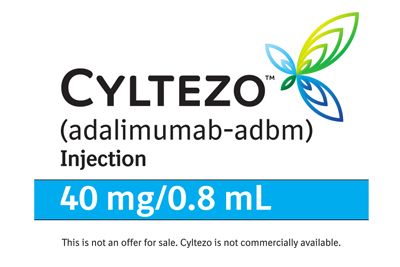- Bone Health
- Immunology
- Hematology
- Respiratory
- Dermatology
- Diabetes
- Gastroenterology
- Neurology
- Oncology
- Ophthalmology
- Rare Disease
- Rheumatology
FDA Grants Interchangeable Status for Boehringer Ingelheim's Adalimumab Biosimilar (Cyltezo)
The interchangeable designation allows pharmacists more flexibility to dispense this potentially money-saving product and gives Boehringer Ingelheim a marketing edge.
The FDA has approved an interchangeable designation for Boehringer Ingelheim’s adalimumab biosimilar Cyltezo, which was originally approved in August 2017 and is scheduled to go on the market on July 1, 2023, based on an agreement the company has with AbbVie, the producer of the originator product, Humira.
The approval places Boehringer Ingelheim in a potentially strong position with respect to other adalimumab biosimilar developers. There are 6 adalimumab biosimilars approved and lined up for market entry in 2023, and Cyltezo will be among the first to launch, based on the settlements AbbVie has struck with the companies.
Also, launching in June 2023 is Hadlima, an adalimumab biosimilar developed by Samsung Bioepis and slated for launch in partnership with Organon. Hadlima does not have interchangeable status. The other adalimumab biosimilars that have FDA approval will launch in later months of 2023.
The interchangeable designation will allow pharmacists to substitute Cyltezo for the originator product without consulting with the prescribing physicians. This is expected to open doors to wider patient access, although all states have now enacted conditions that govern the interchangeable designation.
Cyltezo is a citrate-free product, which results in less pain on injection, and it is approved for multiple forms of chronic inflammatory disease, including moderate to severe active rheumatoid arthritis, polyarticular juvenile idiopathic arthritis (4 years of age and older), psoriatic arthritis, adult Crohn’s disease, ulcerative colitis and plaque psoriasis, as well as active psoriatic arthritis and ankylosing spondylitis. It is interchangeable across all of these indications.
Cyltezo will be available in 20 mg/0.4mL and 40 mg/0.8 mL pre-filled syringes.
“We are proud to be the company driving the advancement of biosimilars and delivering the first and only Interchangeable biosimilar with Humira,” Boehringer Ingelheim said in a statement following the FDA approval.
“It is a true milestone and an important step forward for broader adoption in the United States and for patient access to affordable medicines,” said Thomas Seck, senior vice president of Medicine and Regulatory Affairs at Boehringer Ingelheim.
Biosimilars are considered highly similar to and as efficacious and safe as the products they reference. To qualify for the interchangeable designation, a biosimilar must undergo a switching study in which patients change back and forth from the originator product to the biosimilar several times, and the purpose is to demonstrate that the clinical outcomes are the same regardless of the multiple switches.
Whereas Cyltezo is now the frontrunner in the interchangeable race, Boehringer Ingelheim faces potential competition in this ranking from Alvotech, of Reykjavik, Iceland. Alvotech is seeking to bring a high-concentration, citrate-free, interchangeable formulation of adalimumab (AVT02) to market in the United States and has opted to battle AbbVie in court over Humira's patent barriers rather than settle.
The earliest Alvotech could see a court decision is October 2022, and that litigation is just a part of the effort ahead to bring AVT02 to market. There has been no FDA decision so far on approval or interchangeability.
In addition, the high concentration formulation (100 mg/mL) has rapidly become the dominant version of adalimumab in the marketplace owing to its convenience and because it is citrate-free, a strong selling point with patients.
The phase III study, VOLTAIRE-X, that qualified Cyltezo for approval as an interchangeable biosimilar involved a 40 mg/0.8 mL formulation, not high concentration. Nevertheless, Humira earned $16.2 billion in US revenues in 2020 and the cost of the product—$77,000 for a year’s supply—is considered exorbitant by many stakeholders in the US health care industry. Industry insiders have said there is room for all formulations and multiple contenders while the cost of the originator product remains this high.
Adalimumab biosimilars have long been available in the European Union, where AbbVie’s Humira revenues have declined considerably owing to biosimilar competition. Non-US Humira revenues in 2020 were $3.7 billion, down 13.6%.
Other Adalimumab biosimilars slated to enter the US market in 2023 are Hyrimoz (Sandoz), September 2023; Abrilada (Pfizer), November 2023; Amjevita (Amgen), January 2023; and Hulio (Viatria/Fujifilm Kyowa Kirin), July 2023.
This marks the second interchangeable biosimilar approval ever and the second this year. Semglee, a long-acting glargine insulin, was approved as a biosimilar and an interchangeable product in late July.
Newsletter
Where clinical, regulatory, and economic perspectives converge—sign up for Center for Biosimilars® emails to get expert insights on emerging treatment paradigms, biosimilar policy, and real-world outcomes that shape patient care.

